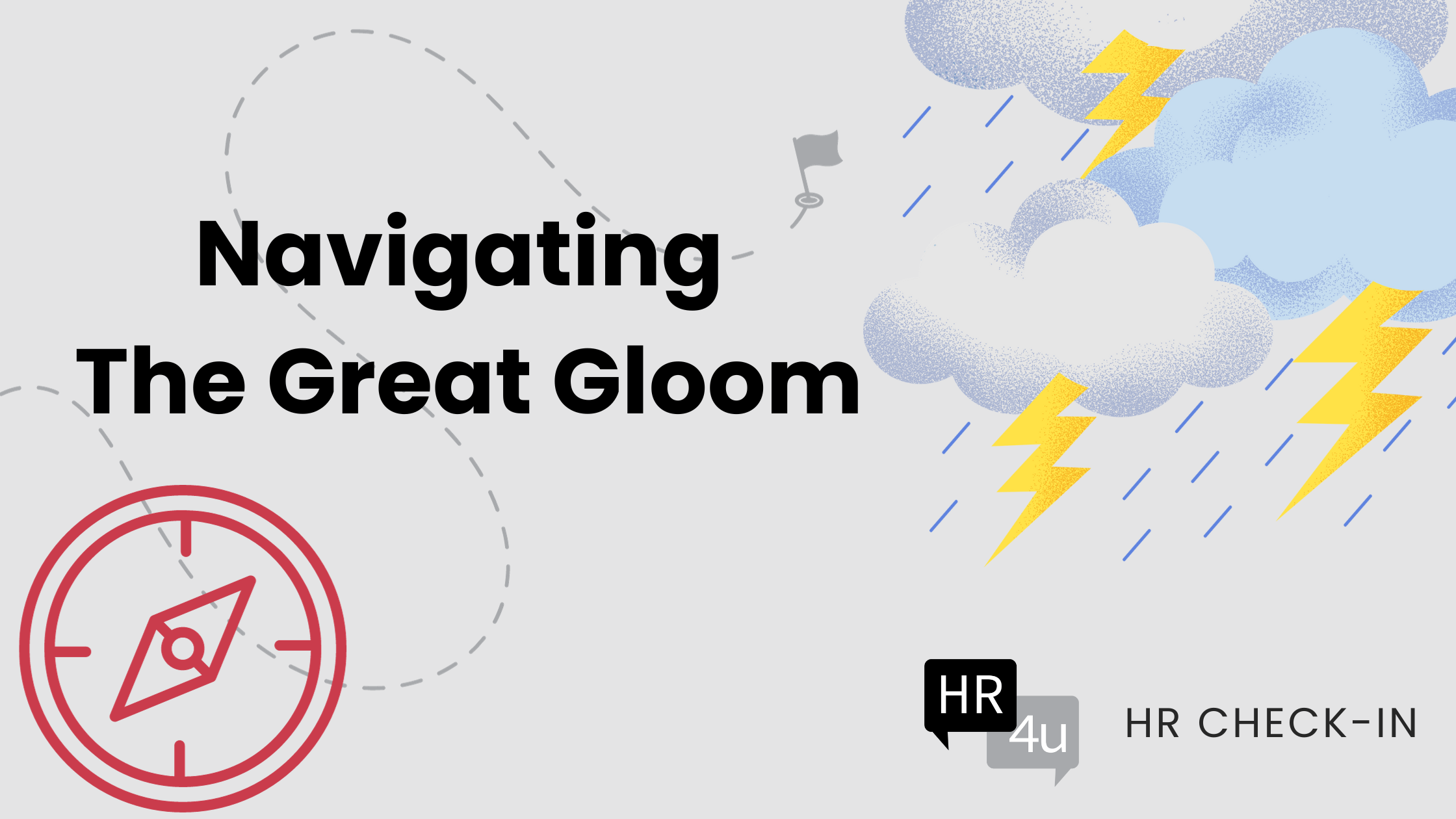In the ever-evolving landscape of the professional world, we often find ourselves facing unforeseen challenges. “The Great Gloom,” a term that emerged in the wake of the COVID-19 pandemic, is the continuing period of profound change and uncertainty in the professional world. The collective sense of uncertainty and disruption experienced globally has undoubtedly left its mark on the workforce. Employee happiness and well-being is experiencing a noticeable decline as people grapple with various challenges, including health concerns, remote work, economic instability, and social isolation.
Let’s explore how HR can serve as a beacon of support and guidance for organizations in navigating these turbulent times.
Acknowledging the Impact:
The Great Gloom, characterized by economic uncertainties, global health crises, and technological disruptions, has presented unique challenges for both employers and employees. Recognizing the profound impact on mental health, remote work dynamics, and overall job security is crucial for organizations in fostering a resilient and adaptive workforce.
Prioritizing Employee Well-being:
One of the primary responsibilities of HR during The Great Gloom is to prioritize employee well-being. This involves creating a supportive and empathetic work culture that acknowledges the stressors employees may be facing. Implementing wellness programs, mental health resources, and flexible work arrangements are essential steps in fostering a positive work environment. HR plays a vital role in creating open communication channels for employees to express their concerns and needs, creating a supportive and understanding workplace culture.
Adapting to Remote Work Realities:
The abrupt shift to remote work brought on by the COVID-19 pandemic has forced HR departments to reimagine traditional workplace structures. Navigating the challenges of virtual collaboration, addressing burnout, and ensuring that employees feel connected despite physical distances are critical tasks for HR professionals. Implementing effective communication channels, providing remote work training, and promoting work-life balance become central components of HR strategies. HR can help employers create remote work policies that address these issues and offer training and development opportunities for remote employees to stay connected and motivated.
Reskilling and Upskilling Initiatives:
The Great Gloom has accelerated digital transformation and rendered some job roles obsolete. HR departments must take the lead in identifying skills gaps and implementing reskilling and upskilling initiatives to ensure that employees remain relevant and competitive in the evolving job market. This not only benefits individual career growth but also contributes to the overall resilience of the organization.
Transparent Communication:
Clear and transparent communication is pivotal during times of uncertainty. HR professionals should be adept at conveying information about organizational changes, crisis management plans, and future expectations. Establishing open lines of communication fosters trust and helps alleviate anxiety among employees.
While The Great Gloom has undoubtedly reshaped the professional landscape, HR stands at the forefront of guiding organizations and employees through these unprecedented times. By prioritizing well-being, embracing change, and fostering a culture of adaptability, HR can play a pivotal role in turning challenges into opportunities for growth and resilience. As we continue to navigate these uncharted waters, the adaptability and compassion of HR professionals will be key in shaping a brighter and more resilient future for the workforce.


